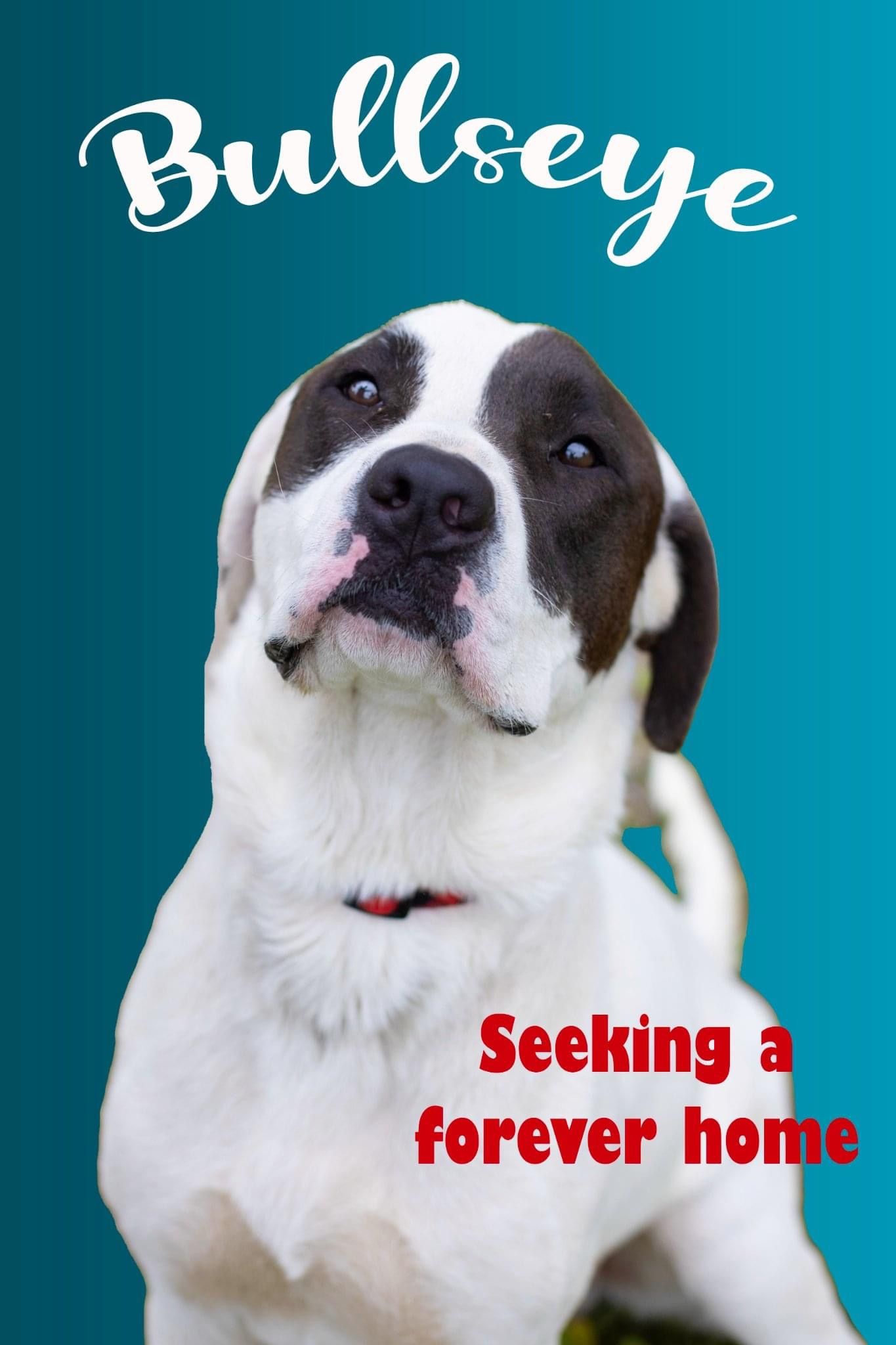Many of the dogs that make their way to us are sick or injured and in need of lifesaving measures. Bullseye, born on February 8, 2020, contracted Parvo* in early 2022. He was picked up as a stray by Benton County Animal Control and surrendered to us, very sick and in need of extensive care to save his life. Flash forward to today, and Bullseye is fully recovered and thriving in a foster home while he waits for his people to find him.
Bullseye is an American Staffordshire Terrier mix that knows his basic commands, is kennel and potty trained, and is very treat motivated (which is helpful for learning more tasks and tricks!). He enjoys walks and does well on a leash, and absolutely LOVES to snuggle with his foster family, which includes three children between the ages of 7 and 10.
While he likes other dogs, he prefers dogs close to his size, and if they’re girls, even better – he has two Belgian Malinois foster sisters that he does great with. Like many dogs, he has a high prey drive, so sharing a home with cats, small dogs, or other small animals probably wouldn’t be a good idea. A fenced yard and a person that enjoys walking and tossing the ball in the backyard would be a dream come true for Bullseye. You can find adoption applications at www.mikeyschance.com, and if you’re interested in fostering, click Become a Foster (under the ‘Support Us’ tab)!
What is Parvo?
Parvo (parvovirus) survives in the environment for long periods of time. Anything can be contaminated with it so a dog can contract the virus by simply sniffing the ground where an infected dog has been.
Puppies should receive a three-shot DHPP vaccine series that begins at six-eight weeks of age and is completed at around 16 weeks. The series typically costs around $60 and provides immunization for distemper, adenovirus, parainfluenza, and parvovirus. Conversely, to treat a dog that has been infected with the parvovirus requires hospitalization, and treatment costs $600–$1,200 per day, and can take several days before the dog recovers (if the dog recovers at all). Until a puppy is fully vaccinated, public areas should be avoided until immunity is achieved. Adult dogs should routinely have boosters, which help maintain immunity throughout their lives.
Become a Foster (under the ‘Support Us’ tab)! www.mikeyschance.com


